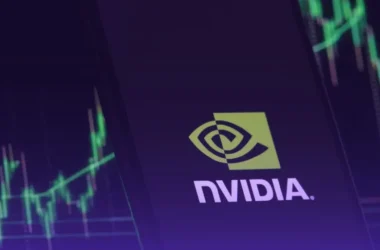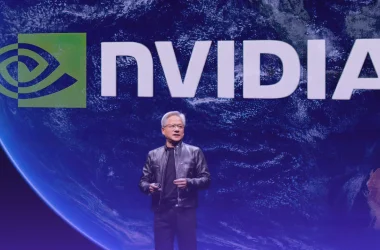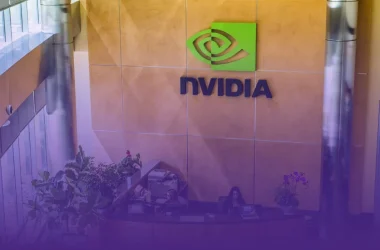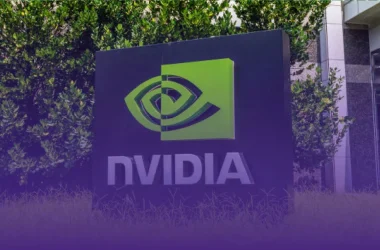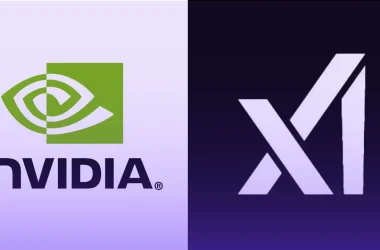At this point, it’s almost common knowledge that the AI industry is destined for unprecedented future growth. It’s surprising, then, that this earnings season was especially bad for AI companies, with a combined $190 billion of their value lost.
The loss immediately followed the Q2 2024 reports released by Alphabet Inc. (NASDAQ: GOOGL) and Microsoft Corp. (NASDAQ: MSFT). What’s even more puzzling is that even though the reports were positive and beat expectations, the stocks of Alphabet and Microsoft fell 6% and 1%, respectively.
This naturally raises the questions of why investors were disappointed in both companies despite the positive results, and why the AI industry in particular was impacted.
Microsoft’s Performance
Microsoft’s positive report didn’t particularly come as a big surprise to investors. Analysts had expected the company to report quarterly earnings at $2.78 per share, a % 20-year-over-year increase. Total revenue was predicted to be around $61 billion, a big jump from the $56.5 billion figure reported in the previous quarter.
Nevertheless, it’s still notable that the report’s key numbers exceeded almost all investors’ expectations. Microsoft reported total revenue of $62 billion, a %18 year-over-year increase. Its net profit also increased %33, reaching a total of $21.9 billion. Lastly, its earnings per share were reported to have reached $2.93, surpassing analysts’ expectations.
As a result, Microsoft has toppled Apple and is now the world’s most valuable public company. What’s particularly interesting about all this is that the company’s growth in the last quarter is mainly attributable to its investment in AI.
Microsoft has recently been capitalizing on the AI boom and incorporating it into many of its flagship products. The clearest example of this is its extended partnership with Open AI, the start-up behind the development of the groundbreaking chatbot ChatGPT. Microsoft’s total investment in Open AI is estimated to have exceeded $10 billion as of 2023.
If you’re wondering how profitable ChatGPT and AI can be for Microsoft more generally, you don’t have to look far. The company is actively adding AI features to many of its flagship products. For example, in November of last year, it started selling Copilot, an AI assistant, for $30 per month as part of its Office software.
Copilot can perform many important tasks, like summarizing emails or crafting slide shows. The revenue from Office applications rose %17 as a result. This is a promising figure compared to some analysts’ expectations of %14.
A more important example is the rapid growth in Microsoft’s commercial cloud offerings, which brought in $33.7 billion this quarter, up %24 from the previous year. The driving force behind the increase is the company’s flagship cloud computing product, Azure. The total revenue from Azure grew %30 this quarter, faster than the three previous quarters. The rate is also high compared to the growth of Azure’s main competitor, Google’s cloud computing services, which only grew %25.7.
According to Brett Iversen, Microsoft’s vice president for investor relations, Azure’s newly added AI features account for 6% of the total growth, which is double the number reached during the previous quarter. Azure AI now has a user base of around 57,000 customers, a third of whom are newcomers who started using the service less than a year ago.
As a result, it’s clear that Microsoft has “moved from talking about AI to applying AI at scale,” CEO Satya Nadella said.
The Case of GOOGL Stock
The situation at Alphabet isn’t much different. The company reported a total revenue of $86.31 billion, a % 11-year-over-year jump that exceeded the $85.33 billion figure predicted by LSEG. The earnings per share also came higher than expected, reported at $1.64 compared to the $1.59 again predicted by LSEG.
Alphabet, like Microsoft, is hopeful that massively investing in AI is the best way of securing future growth for itself. Its most notable recent investment is the development of Google’s Gemini, which was released in December of 2023. The company claimed the AI model to be far superior to Microsoft’s ChatGPT and is touted by the company as the most sophisticated AI tool ever created.
During the earnings call, company executives emphasized the role AI, and especially Gemini, would play in enhancing many of Alphabet’s flagship products. Most notably, the model is actively being weaved into Google’s search engine. This should obviously help it compete with Microsoft’s Bing, which has been rising in popularity. Alphabet’s CEO, Sundar Pichai, claimed that Gemini was already reducing search latency by %40. He also announced that an improved version of the model, named Gemini Ultra, is in the final stages of development and will be launched soon.
Google Cloud is also one of the main products that are actively being integrated with AI tools. This is surely a key reason why the product is now profitable. This quarter brought in a revenue of $9.1 billion, with a net profit of $864 million, a significant improvement given the year-ago net loss of $164 million.
Another interesting AI application Alphabet is actively working on is the incorporation of AI tools into its ad services. Company executives claimed retail advertisers believe customers are becoming more “price conscious” and that advertisers are increasingly interested in AI-powered marketing campaigns as a result.
Future of AI and Tech Giants
Now that we know the bigger picture, we’re saddled with two puzzling questions. First, since things seem to be going well for the tech giants, why were investors still disappointed with their earnings reports? Second, and relatedly, how is this linked to AI stock falling, especially given all the future investments the companies have made in AI?
Well, it’s helpful to remember a simple and obvious principle: earnings reports are about past progress, while stock prices are manifestations of investors’ beliefs about future progress.
So even if a company has a positive earnings report, investors might still be skeptical for any number of reasons that its future prospects will be good. Perhaps the company has recently been growing as a result of some macroeconomic trend that’s not going to continue, or maybe the company’s expectations for the next quarters are disappointing. These are only two examples of many possible scenarios.
The question we’re faced with is why investors were put off in this case. The answer probably has to do with both Microsoft and Alphabet’s wide AI investments and how costly AI can be.
Extremely powerful AI models like Gemini or ChatGPT require gigantic data centers that take up massive areas and are expensive to build and maintain. This is not to mention the research and development costs that go into developing these products.
Consider the case of Alphabet. A key takeaway from its latest earnings is that the company saw an 11% year-over-year increase in its total expenses. According to Ruth Porat, the company’s Chief Financial Officer, this was mainly the result of real estate and data center investments required for its many AI tools, especially Gemini. Capital investments jumped to $11 billion in the fourth quarter of 2023, and Porat expects that we will see “notably larger” capital spending in 2024.
As for the research and development costs, the company posted expenses of $45.4 billion in 2023, a significant increase of nearly $6 billion from the previous year. Given the many ongoing AI research projects, it’s reasonable to assume that this number would continue to increase.
During the earnings call, Alphabet’s CEO emphasized the company’s awareness of the costs and its commitment to discipline in its plans. However, investors are probably still worried about the company’s prospects in the short term.
It also doesn’t help that Google’s ad revenue was disappointing this quarter. The reported revenue of $65.52 billion fell behind analysts’ estimates of $65.94 billion. The revenue of $9.2 billion from YouTube ads fell just shy of the expected $9.21 billion, even though YouTube is generally considered one of the company’s best sources of revenue.
These numbers aren’t enough to satisfy investors who are worried about the competition from Facebook’s ad business, which is growing at a faster rate. TikTok is also a formidable competitor, with many young people flocking to it daily.
Outlook for AI Stocks
It’s plausible, then, that investors are skeptical of Alphabet’s ability to handle the declining ad revenue on the one hand, and the growing AI expenses on the other hand. They probably sold based on the conviction that, at least in the short term, the company will suffer some losses, and the coming quarters won’t be particularly positive. They’re probably cashing out to take their profits now, instead of waiting until the stock begins to fall over the next few months.
The same probably goes for Microsoft. The company reported a 3% year-on-year increase in operating loss. Its expenses are also projected to keep increasing in the next quarter, most likely because of the widening AI investments.
The AI industry, despite its undeniably massive potential, is still more or less in its infancy. Overall, investors are wisely being cautious about the short-term prospects for these companies and are waiting to see if the AI boom will continue to be as profitable as expected, or if the growing costs will force tech giants to halt their plans. The future will tell.
Disclaimer
Please visit and read our disclaimer here.

